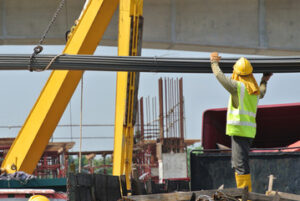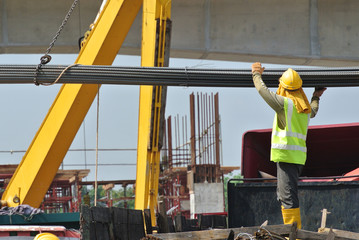There are several important things to consider when hiring dock builders. First, consider how much time it takes to construct the dock. Most builders can estimate a start and finish date, but sometimes unforeseen circumstances arise, and a change in design needs to be made. Make sure the dock builder communicates all design changes to you up-front, so you know what to expect and when to expect it. Then, once you have selected a builder, consider obtaining a warranty.
 It’s also important to work with a licensed marine contractor. Some contractors specialize in pile driving and small floating docks, while others focus on large boats for marinas. Using an experienced marine contractor can make all the difference in the success or failure of your project. Using a quality dock builder will ensure that your dock will last a lifetime and protect the property around it. If you are still deciding whether to hire a professional dock builder, Dock Builders Charleston SC can help you choose the right one.
It’s also important to work with a licensed marine contractor. Some contractors specialize in pile driving and small floating docks, while others focus on large boats for marinas. Using an experienced marine contractor can make all the difference in the success or failure of your project. Using a quality dock builder will ensure that your dock will last a lifetime and protect the property around it. If you are still deciding whether to hire a professional dock builder, Dock Builders Charleston SC can help you choose the right one.
Most dock builders learn their trade through a three or four-year formal apprenticeship with significant on-the-job training. Apprentices typically complete 144 hours of classroom and on-the-job training each year. Some apprentices compensate their apprentices for completing training while working on a construction site. Apprentices usually assist journeymen in the basic tasks they are responsible for and progress to more complex jobs as they gain experience. In addition to classroom training, dock builders receive on-the-job training, including Occupational Safety and Health Administration safety courses.
Apprentices can earn higher wages than their full-time counterparts. Reports that apprentices receive between thirty and fifty percent of the wage of a fully trained carpenter. As they gain experience and specialized skills, their wages will increase accordingly. However, you can also expect to find a number of opportunities as a dock builder in the coming years. Dock builders should seek out employment opportunities in unionized shops.
Professional dock builders should be easy to work with. Ensure you can get in touch with them easily and that they reply within a week or two. One of the best choices for a professional company is Associated Pacific, which has been in the industry for 40 years and has an extensive portfolio of completed projects. In addition to their expertise, these professionals have extensive experience in marine contracting. If you are unsure of which dock builder to choose, you can also ask for references.
If you want to be a Dock Builder, consider a city with a thriving industry. Some states are the best place to live if you’re looking to make a good living. However, it’s important to keep in mind that jobs in this field are not plentiful. If you’re looking for a Dock Builder position, you’ll have a lot of competition. And if you’re looking to save a little money, consider a city with a low cost of living.
Regardless of what type of loading dock you’re looking for, you’ll want to protect it from damage from trailer creep. The forces exerted by forklifts can cause trailers to creep away from the dock or even separate from the dock leveler. This is also called trailer walk, and it can cause major accidents on loading docks. Aside from the type of loading dock, there are other factors to consider when choosing the right dock leveler. For instance, whether you’re loading a light-weight truck, a lighter-weight model might be the better option.
When choosing between plastic and concrete, you should consider the type of materials used to build the dock. Plastic is lightweight, buoyant, and easy to maintain. And it can be recycled if you’re environmentally conscious. Whether you’re building a floating dock or a permanent dock, it’s important to choose a suitable material for your location. You’ll want to choose a material that’s safe to use, and that will last for years.
When deciding on the type of dock to build, you should evaluate the depth of the water where you’ll be installing the dock. A sandy or flat lake bed is ideal, but rocky or pebbly can be problematic. You’ll also need to consider the level of the lake, as a lake will naturally raise and fall. If the difference is small, a stationary dock is OK. Otherwise, a floating dock may be the best option.
